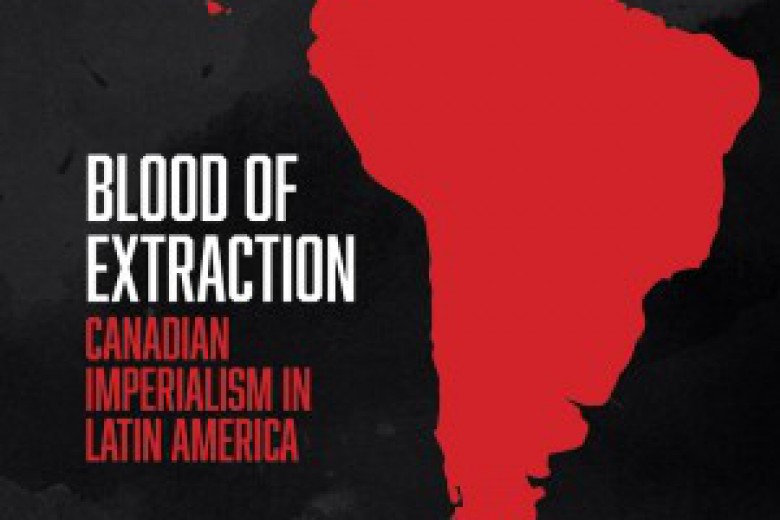By Dave Oswald Mitchell
May 2008
“The rich ruleth over the poor,
and the borrower is slave to the lender.”
Proverbs 22:7
Reasons to get out:
1. We are a nation of debt slaves
“Debt throughout most of history has been little more than a slight variation on slavery,” wrote Michael Hudson in his prescient May 2006 article in Harper’s (“The New Road to Serfdom: An illustrated guide to the coming real estate collapse”). Today, however, perceptions have changed to such a degree that a mortgage is now seen as an “investment,” and levels of personal indebtedness for both Canadians and Americans have never been higher.
The Vanier Institute of the Family recently reported that Canadians’ household debt rose seven times faster than income between 1990 and 2007. This debt now represents a record 131 per cent of average household income, meaning that for every $100 of net income earned in Canada last year, $131 was owed.
Because of the extremely high interest charged, rising credit card debt is particularly worrisome. According to the Vanier Institute report, Canadians earning a mid-range income of about $60,000 a year saw their credit card debt almost double since 1990, from $12,000 to $22,500 on average. Twenty-six per cent of Canadians now say that credit card debt is “the most bothersome thing” in their lives; 22 per cent say mortgages are.
Canadians’ personal savings rate (savings as a percentage of disposable income), meanwhile, has plunged from 10 per cent in 1990 to about one per cent today. Whereas households put about $7,500 into savings in 1990, the average household today saves only about $1,000.
This situation leaves us far more vulnerable to an economic downturn or a rising interest rate than if we had no debt and a rainy day fund to fall back on.
2. Paying off debt is a risk-free investment
Recent stock market volatility, grim projections of further losses, and ugly rumours of U.S. bank failures on the horizon have many people searching for secure places to invest their retirement savings. But most of us need look no further than our own stack of unpaid credit card bills and mortgage statements. Why? Because a dollar invested in paying off debt is both a dollar you no longer owe plus a corresponding annual interest payment you’ll never have to make again.
For example, if you’ve got a $100,000 mortgage at a 6 per cent interest rate, every extra payment you make nets you a guaranteed after-tax return of 6 per cent per year for the entire life of the mortgage.
3. Economic growth is killing the planet
Living beyond our means isn’t just risky; it is also unethical. Unbridled consumer spending fuels a vast system of perpetual economic growth — and on a finite planet, such a system of endless growth is simply not sustainable. With climate change, ecosystem devastation, falling crop yields, deforestation and declining fish stocks emerging as increasingly serious and widespread problems, the question is no longer whether the growth-based economy will collide with the earth’s natural limits, but how soon and how destructive that collision will be.
Learning to live within our means (and the planet’s) is, therefore, emerging as perhaps the single greatest ethical imperative of the 21st century.
4. Economic growth vs. oil scarcity
“When the monster stops growing, it dies. It can’t stay one size.”
John Steinbeck
If the ethics of the matter can’t sway us, perhaps the thermodynamics of it will: we have now extracted and burned about half of the available supply of petroleum — the easy-to-find, easy-to-use half. The era of cheap energy is drawing to a close, and the consequences for an economic model that, in John Steinbeck’s words, is incapable of shrinking peacefully will be widespread and dire.
Besides, consistently spending money we don’t have only makes sense if we assume we will have more money tomorrow than we do today, and that our future income will eventually outstrip our excessive spending. But with global oil supplies tightening, and with oil and food prices sky-rocketing as a consequence, this assumption of endless expansion and guaranteed future growth is beginning to look downright delusional.
Coping with peak oil will require everything we’ve got. Getting out of debt is perhaps the single most effective first step you can take to prepare.
Ways to do it:
1. The golden rule of debt avoidance
Take it from Saturday Night Live and order your free copy of Don’t buy stuff you cannot afford. (Order now, and you’ll also receive Seriously, If You Don’t Have the Money, Don’t Buy It!) Funny, but true: stop living beyond your means, and use any money left at the end of the month to pay down your debts.
2. Draw up a hit list
Make a list of all your debts (student loans, credit card debts, mortgage, etc.) along with their monthly payments, interest rates and balances. Next, decide on a plan of attack: some advisors recommend tackling the debt with the highest interest rate first; others find that paying the smallest debts off first (while continuing to make minimum payments on the others) builds momentum and motivation that will serve you well in tackling the more daunting sums. Whichever route you choose, review your progress and update your list regularly. And be sure to celebrate your victories! (Cheaply, of course.)
3. Track and evaluate your spending
Forget budgeting (at least until you have enough information to build a realistic one that won’t leave you discouraged every time you deviate from it). Instead, start keeping track of everything you spend, and tally it up by category at the end of each month. (Make sure to list “interest payments and banking fees” as one of those categories-they’re something we could all happily live without, and the simple act of tracking them can help you find ways to eliminate them over time.)
For each purchase (sugar-free low-fat latte, Fabergé egg, donation to Greenpeace, etc.), ask yourself if you’re satisfied with the return you got on the money you spent. Did the money you spent bring you fulfillment commensurate with the time it took to earn that money? Was the purchase in line with your values? These questions will help you identify the categories where you consistently spend more than you would like to. Once you become aware of your patterns, you’ll naturally start looking for ways to cut back in those areas.
4. Put your money where your mouth is
After tracking and evaluating your spending for a few weeks, you’ll be in a much better position to begin aligning your spending habits with your values. This should allow you to scale back on wasteful or unnecessary purchases while devoting more of the money you save to the things that sustain you and bring you satisfaction — and to the causes you believe in.
5. Focus on food
Eat more meals at home, and pack a lunch to take to work.
When you’re shopping for groceries, allow yourself to splurge on higher-quality items if it means eating fewer meals in restaurants — you’ll still save a bundle, and you’ll feel better about what you eat. By focusing on buying whole, unprocessed foods, you’ll save even more and your body will thank you.
Plant a garden if you can.
6. Downsize your space
Consider moving into a smaller place. The average size of a Canadian house has ballooned from just over 800 square feet in 1945, to 1,075 square feet in 1975, to about 1,800 square feet in 2003, even as the size of the average Canadian family has fallen.
By downsizing your living space you’ll realize a significant reduction in both your rent/mortgage and your utility bills (and possibly your other expenses as well, since “stuff” behaves like a gas, expanding to fill whatever size of container you have to put it in).
7. Cut your cards
As of 2003, there were 50.4 million credit cards in circulation in Canada — more than two cards per Canadian adult. As you pay off your debts, get rid of every credit card but one (ideally the one with the lowest interest rate and/or with no annual fee). Use it as little as possible, and pay off the balance in full each month. Ask yourself if the perks you pay for with annual fees really contribute to your quality of life, or if they just encourage you to spend more.
8. Get out and stay out
Once you get out of debt, stay out of debt. Pay cash whenever possible. Don’t buy big-ticket items until you’re saved enough to pay for them up-front. By then you may even have realized you don’t actually need whatever it is!
In fact, you may just find that not spending money starts to become as fun and therapeutic as spending money seems right now.
9. Find strength in numbers
Doing something difficult is always easier when you have a supportive community to back you up. Talking about personal finances remains taboo in our culture, but letting your friends, family and co-workers know that you’re changing your spending habits — and explaining why — can help you stay on track. Not only that, others may be inspired and empowered by your efforts to tackle your debt and put your money to more satisfying uses.
Dave Oswald Mitchell is the editor of Briarpatch. The ideas presented here are for discussion purposes only and should not be construed as financial or investment advice. Please consult a not-for-profit credit counselling service with regards to your specific situation.
Tools, further reading, etc.
Books & articles:
Joe Dominguez and Vicki Robin, Your Money or Your Life. Penguin, 1999.
Possibly the single most powerful resource for taking control your relationship with money.
Jim Merkel, Radical Simplicity. New Society, 2003.
Want to learn to live on $6,000 a year? Check out this practical, charming, and inspirational how-to guide for drastically reducing your ecological and economic footprint.
Jerrold Mundis, How to Get Out of Debt, Stay Out of Debt and Live Prosperously. Bantam, 1990.
Full of simple but powerful tools for getting out of debt.
Michael Hudson, “The New Road to Serfdom: An illustrated guide to the coming real estate collapse,” Harper’s, May 2006.
Having a hard time making sense of the U.S. housing collapse? Hudson explains it all in everyday language before it even happens, accompanied by 20 illuminating illustrations by Nigel Holmes.
David Trahair, Smoke and Mirrors: Financial myths that will ruin your retirement dreams. Self-Counsel, 2003.
Practical and provocative advice from a Canadian chartered accountant.
(Read the excerpt “Don’t Invest in an RRSP Before Paying Down Your Mortgage” online.)
Mike Whitney, “Want to save the economy? Spread the wealth and give workers a raise.” Counterpunch.org,
April 12, 2008
“Working people don’t need lectures on saving money; they need a raise,” Whitney points out. “The big-wigs at Bear Stearns are still dining on crab-cakes at the Four Seasons while the working folk are just trying to make their way through Greenspan’s nuclear winter living on beef jerky and Big Gulps. Where’s the justice?”
Blogs/Websites
The Automatic Earth
The Automatic Earth’s “Debt Rattle” is a daily round-up of news related to the housing and credit crises, with analysis and commentary interspersed. An invaluable resource for anyone hoping to keep on top of the unfolding crises.
The Simple Dollar: Financial talk for the rest of us
An exploration of personal finance from the perspective of a late-twentysomething who just realized that he needs to get a grip on his money. In particular, I would recommend Simple Dollar’s “31 days to fix your finances” program.
Credit Canada’s Debt CalculatorUse this tool to calculate how much you are currently paying your creditors.
Dave Ramsey’s Mortgage Calculator
A quick and easy way to assess your mortgage options, including a quick calculation of the money you would save by increasing your payments.
Zen Habits’ Finance & Family section
Contains a wealth of tips and tools for reducing your spending and paying down your debt.
Redefining Progress
Take Redefining Progress’s Ecological Footprint quiz to measure the extent of your impact on the earth.
The Simple Living networkResources for learning to do more with less.



_780_520_90_s_c1.jpg)

